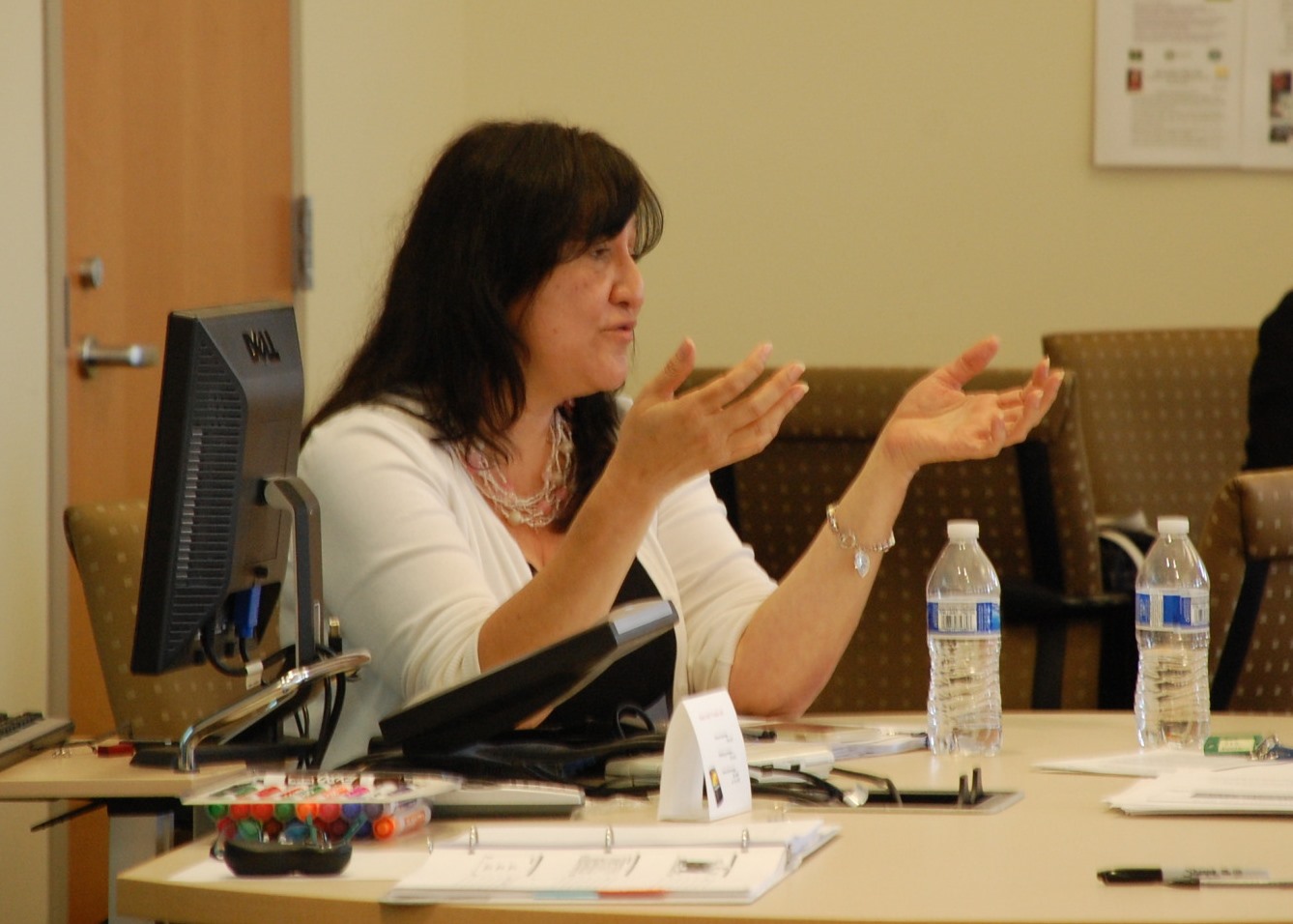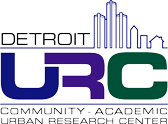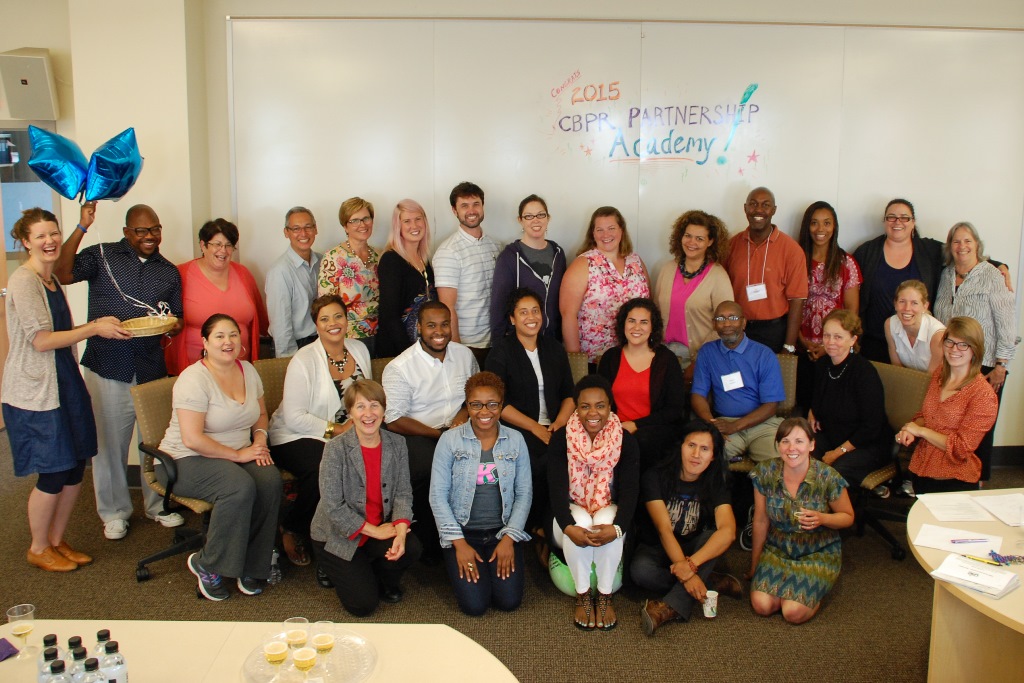Core Curriculum for CBPR Partnership Academy
 The components and core curriculum of the CBPR Partnership Academy are described below. Although we are not currently accepting applicants, we hope to offer the program in the near future. Please watch the Detroit URC home page for future announcements. We also offer an online course in CBPR and may continue to offer a summer course at the University of Michigan titled, “Methods in Community-Based Participatory Research for Health."
The components and core curriculum of the CBPR Partnership Academy are described below. Although we are not currently accepting applicants, we hope to offer the program in the near future. Please watch the Detroit URC home page for future announcements. We also offer an online course in CBPR and may continue to offer a summer course at the University of Michigan titled, “Methods in Community-Based Participatory Research for Health."
For updated information please check https://sph.umich.edu/umsse/
Past cohorts of the CBPR Partnership Academy have included the curriculum described below.
One-Week Intensive Course
The CBPR Partnership Academy has kicked off with an intensive, all-expenses-paid course at the University of Michigan (U-M) in Ann Arbor, MI. Titled Innovative Methods in CBPR, this hands-on, collaborative course has facilitated intensive learning about CBPR principles, partnership development, innovative behavioral and social science research methods, joint data interpretation and application, and more. Drawing on curricula and materials from the Detroit URC's highly regarded half-day short course on CBPR (jointly conducted as part of the Graduate Summer Session in Epidemiology), this expanded course has emphasized rigorous methodology, such as the use of mixed methods and alternative research designs. The following provides a brief description of the core curriculum that has been covered in the course.
Introduction to CBPR: Overview of CBPR, including: definition, rationale, and principles all using the Detroit URC as a case example. Equity, ethical conduct of research, and cultural humility have been highlighted as integral to CBPR.
Survey Methods in CBPR: Innovative use of survey questionnaires in a Detroit URC-affiliated CBPR effort: Community Action Against Asthma (CAAA). This session has addressed how CAAA surveys were designed and implemented using a CBPR approach, the roles academic and community partners played in the process, and the challenges and strengths of involving community members as survey interviewers.
Research Design in CBPR: Innovative behavioral and social science research designs that complement randomized controlled trial (RCT) designs, such as randomized staggered intervention designs. Two case examples of CBPR intervention studies by Detroit URC-affiliated partnerships have been presented.
Focus Groups in CBPR: This session has covered how and why the REACH Detroit Partnership used the focus-group method as part of their CBPR studies, including insights about how academic and community partners were involved in different phases, and challenges and limitations of the focus-group method within the context of CBPR.
Responsible Conduct of Research: Formal instruction provided in Responsible Conduct of Research (RCR) within the context of CBPR.
Data Interpretation, Analysis, & Dissemination in CBPR: This session has covered strategies that the Healthy Environments Partnership (HEP) used for collecting data and sharing results using multiple data collection methods (e.g., survey questionnaire, focus groups, observational data, photovoice), and examined how the group engaged community members in the interpretation, analysis, prioritization, action planning and dissemination process.
Mixed Methods: The relevance and application of the use of mixed methods within the behavioral and social sciences (i.e., quantitative and qualitative) in CBPR has been addressed. Topics have included rationale for using mixed methods in CBPR to address health inequities, the timing and sequencing of mixed methods, and strategies for combining the strengths of both quantitative and qualitative methods to provide a more comprehensive view of a given phenomenon and to evaluate interventions.
Trip to Detroit: Participate in a guided tour of Detroit highlighting the impact of social and physical environments on health and what communities are doing about it. The tour includes visits to select Detroit URC partner organizations engaged in CBPR.
Partnership Evaluation Using In-Depth Interviews: Using the Detroit URC as a case example, this session has examined the use of in-depth interviews for evaluating the process and impact of CBPR partnerships, and the rationale for doing so); the role of all partners in conducting the evaluation; and lessons learned about incorporating in-depth interviews as part of behavioral and social science studies using a CBPR approach.
Next Steps & CBPR Project Planning: This final session has addressed how to pursue CBPR start-up projects, as well as taking advantage of post-class education and engagement activities and mentoring opportunities available. The session concludes with a reception for participants and instructors.
Year-Long Learning & Support
After learning about the principles and practices of CBPR in the summer course, CBPR "Scholars" participated in Partnership Academy ongoing-learning activities and resources that helped guide them through the process of developing and implementing a CBPR partnership. In addition to receiving a Partnership Formation Guidance Checklist, each partnership team had a community and academic mentor during the program year, and were eligible for a small partnership development/project grant to help bring their CBPR initiative to fruition. Participants also received quarterly Detroit URC e-newsletters (including updates about funding opportunities); and were invited to CBPR-related meetings, webinars, and interactive forums.
Community-Academic Scholars Network
Following the short course and the year-long education and engagement activities, another key component of the experiential CBPR Partnership Academy was that it offered ongoing participation in a nationwide Community-Academic Scholars Network, which was designed to foster continued learning and innovation in behavioral and social science research using a CBPR approach. Members have had access to short-course curriculum materials and member profiles, received invitations to peer-engagement events, and otherwise benefited from ongoing CBPR-related networking and career-development activities.




